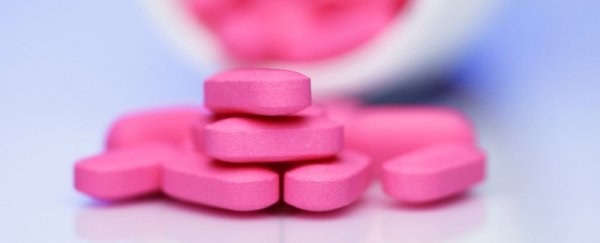Two patients with long COVID in California have almost completely alleviated their symptoms by taking daily antihistamines, according to a newly published case report.
While the evidence is anecdotal, the remarkable results aren't without precedent, and the authors hope the stories they have detailed can give patients hope and point researchers in the right direction for investigating future treatment.
There are currently no evidence-based treatments for long COVID – also known as post-acute sequelae of SARS-CoV-2 infection (PASC) – but antihistamines are a promising avenue, as they are generally safe to take on a daily basis, so long as they don't interfere with other medications.
"Most patients tell us that providers have not recommended anything that has helped," says nurse Melissa Pinto from the University of California, Irvine.
"If patients wish to try over-the-counter antihistamines, I urge them to do so under medical supervision. And because providers may not know about new potential treatments, I would encourage patients to be active in their care and consider taking research and case reports like ours to appointments with providers so they can help create a regimen that will work."
The first case detailed by researchers at UCI involves a healthcare worker in her 40s, who would have been one of the first COVID-19 patients in the United States. The patient was probably infected sometime in January of 2020, although testing at this time was scarce. Three days after falling ill, the patient says she was hit by a headache and a wall of severe fatigue.
Days later, she broke out in a rash and began experiencing chest pain, fevers, and night sweats. The worst of the infection lasted 24 days, but many of the symptoms lingered on. In March of the same year, she started reporting a new symptom: brain fog.
It was only when the patient took an antihistamine for a cheese allergy in June of 2020 that she suddenly felt better. She started taking 50 milligrams of diphenhydramine (a common over-the-counter antihistamine, often sold in the US as Benadryl) daily, but eventually took the news to her doctor, who prescribed a different medication to try and arrive at a dose that would get her symptoms under control.
The patient has now been on a prescription of 50 mg hydroxyzine pamoate for more than nine months and her symptoms of fatigue, brain fog, exercise intolerance, and chest pain are nearly gone. Back at full-time work, she says she's achieved 90 percent of her pre-illness functioning.
The second patient, a middle-aged teacher, has a similar story. A month after contracting SARS-CoV-2, she was still suffering from joint pain, insomnia, a rapid heart rate, and difficulty concentrating. A year later, the symptoms remained debilitating.
One day, the patient randomly switched her antihistamine medication from fexofenadine to 25 milligrams of diphenhydramine, as the latter was more convenient to find. The next morning, she noticed her brain fog and fatigue had improved, so she kept it up. The patient now takes 25 mg of diphenhydramine at night and 180 mg fexofenadine in the morning, and says she feels 95 percent better.
The near-complete recoveries of both patients are remarkable, but they are not the first stories of their kind.
The symptoms of long COVID are very similar to Myalgic Encephalomyelitis/ Chronic Fatigue Syndrome (ME/CFS), which is an understudied and underfunded medical condition impacting up to 24 million people worldwide. The two are probably under the same umbrella.
Now that long COVID or PASC cases are surging in synchrony with the current coronavirus pandemic, researchers are finally giving the symptoms of post-viral illnesses the attention they deserve.
Antihistamines are commonly taken by patients with ME/CFS, although a small trial in 1996 found this medicine showed no benefits among all 30 participants.
More recently, however, physicians have begun calling for renewed research on antihistamines as a possible treatment for ME/CFS. A subset of patients with ME/CFS had shown signs of overactive immune cells, which could possibly be quieted with an antihistamine.
When the global pandemic took hold in 2020, researchers used the evidence to draw similar connections to long COVID.
In 2021, a small study of 49 long COVID patients found an immune system on high alert. What's more, over 70 percent of those in the trial who took antihistamines reported clinical improvement in their lingering symptoms.
Further long COVID research will be needed to truly put antihistamines to the test, but the two promising case reports from California could help kickstart the process.
"The possibility that an easy-to-access, over-the-counter medication could ease some of the [long COVID] symptoms should offer hope to the estimated 54 million people worldwide who have been in distress for months or even years," says Pinto.
The study was published in The Journal for Nurse Practitioners.
